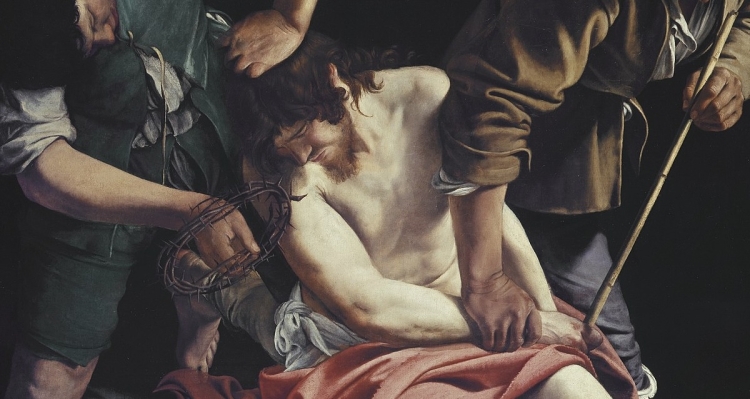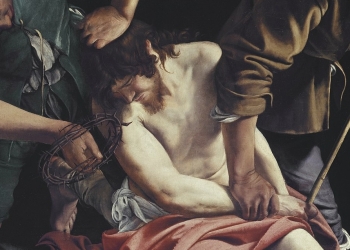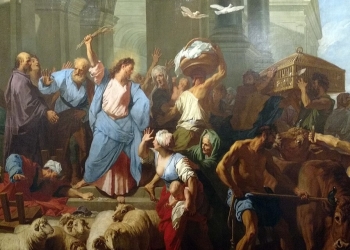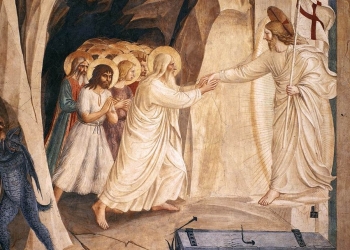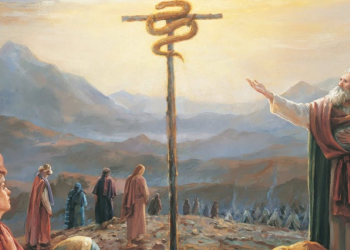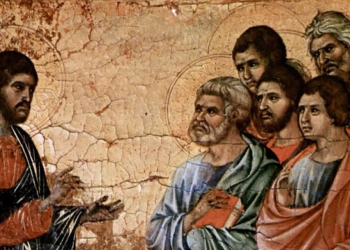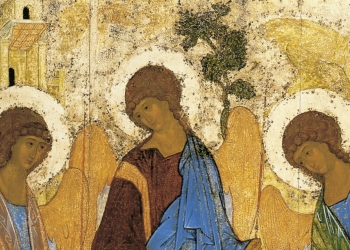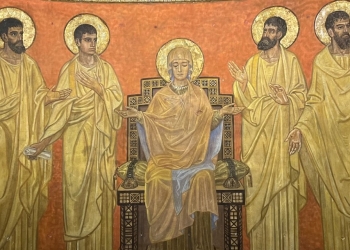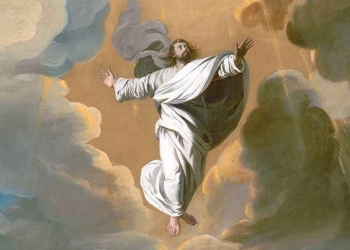23 November 2025
Solemnity of Our Lord Jesus Christ, King of the Universe – Year C
The Solemnity of Jesus Christ, King of the Universe, invites us to read a passage from the Passion of Jesus according to the Gospel of Luke (Lk 23:35-43).
This passage can be divided into two parts.
In the first (Lk 23:35-38), we see the attitude of the different characters toward Jesus at the foot of the Cross, that of the people, the leaders, and the soldiers.
In the second part (Lk 23:39-43), our gaze lifts to see what takes place between Jesus and the two criminals crucified with him.
In both parts, there is a recurring refrain: the leaders of the people, the soldiers, and one of the two criminals ask Jesus to save himself, to come down from the Cross, to show his power.
The Gospel of Luke opens with the proclamation of salvation. This announcement first resounded in Mary's song, exulting in God her saviour (Lk 1:47).Then on the lips of Zechariah, who regained his voice upon seeing the wonders God had done in his life, after believing that God truly could free and save (Lk 2:71, 77). The proclamation of salvation was also heard in Bethlehem, when the angels announced the birth of a Savior to the shepherds (Lk 2:11).
It is an announcement that runs through the entire Gospel, entering the homes of the poor, and working wonders in the lives of so many people.
Now the question is legitimate: what has happened of this salvation, and what will become of it? How can this crucified man honor his promise to be the Savior for every person who believes in him? If he cannot save himself, how can he save anyone else? ("He saved others, let him save himself, if he is the chosen one, the Christ of God." - Lk 23:35).
Everything implies that the salvation this man wanted to offer humanity ends there, on that cross.
Yet, the odd attitude of the other criminal tells us that this is not the case.
He too sees what everyone else sees: a crucified man, incapable of saving himself.
He knows nothing about Him, but witnessing the meekness with which Jesus is dying was enough for him to understand that He is an innocent man, a victim of an unjust power.
So, he asks this man who is not saving himself to save him: “Jesus, remember me when you come into your kingdom” (Lk 23:42).
The ‘good’ thief asks to be saved not by one of the leaders, not by a powerful person, but by a poor, powerless man who is crucified there like him and with him. A silent and defenseless man.
This, in fact, is the very heart of our faith.
God does not save us by imposing His power, but by limiting it, so that He may fully embrace our weakness and be completely in solidarity with our suffering. Weakness becomes a place of encounter, the ideal place where everyone can be reached and saved, where they can begin again and be reborn with a completely renewed perspective.
However, two things are worth noting:
First, the good thief stands before Jesus acknowledging his transgressions: he does not justify himself, he does not hide, he does not minimize his mistakes. On the contrary, he recognizes that he is justly there, receiving what he deserves for his actions (“indeed, we have been condemned justly, for the sentence we received corresponds to our crimes, but this man has done nothing criminal” - Lk 23:41).
Well, only from such self-awareness can a sincere request for salvation arise; this is the door that opens to prayer.
Second, the good thief does not ask to come down from the Cross; he does not use Jesus to obtain a reduction on his punishment, however good it may be.
He asks for something far greater: he knows that the true strength of this man lies in his ability to welcome and forgive, and he aims directly at that essential thing.
And Jesus saves him, that is, He makes eternal that communion of trust and love born in an extreme shared weakness where Jesus chose to remain there in order to be close to us, even in pain.
+Pierbattista
*Translated by the Media Office of the Latin Patriarchate of Jerusalem

